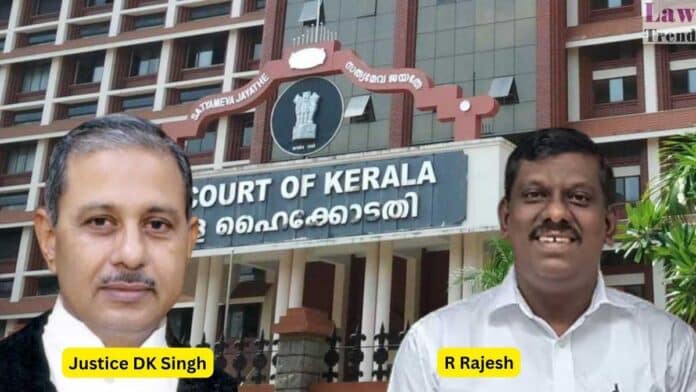The Kerala High Court has initiated suo motu criminal contempt proceedings against former MLA and University of Kerala Syndicate Member R Rajesh over a Facebook post dated July 6, 2025, in which he alleged ideological bias among Judges and questioned the integrity of the Court in matters related to higher education in the State. Justice
To Read More Please Subscribe to VIP Membership for Unlimited Access to All the Articles, Download Available Copies of Judgments/Order, Acess to Central/State Bare Acts, Advertisement Free Content, Access to More than 4000 Legal Drafts( Readymade Editable Formats of Suits, Petitions, Writs, Legal Notices, Divorce Petitions, 138 Notices, Bail Applications etc.) in Hindi and English.




